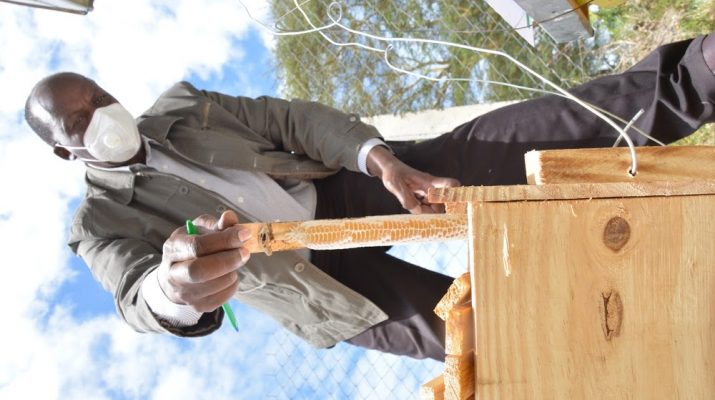The over use of insecticides in farms and deforestation has adversely affected honey production in the country forcing consumers to rely on imports.
This has been worsened by an influx of cheap and adulterated honey from unscrupulous traders both locally and internationally, a move that has eroded the confidence of consumers.
In the last couple of months, the county has recorded heavy spraying targeting desert locusts, a move that has ended up killing thousands of bees.
To this end, the Kenya Agricultural and Livestock Research Organization (KALRO) has partnered with Premier Foods Limited to address the challenges facing the apiculture sector.
Under the joint partnership, KALRO will develop technologies to increase honey production and address the issue of post harvest losses among others.
According to the Director in charge of KALRO center in Naivasha, Dr Evans Ilatsia, the country has the potential of increasing honey production.
Ilatsia said that the partnership included capacity building for farmers involved in bee farming for sustainable honey production.
“Many farmers have challenges in identifying the right types of bee-hives and value addition and this partnership is keen to address this,” he said.
The director was however quick to express his concern over the ongoing spraying of locusts noting that it had massive effects on bees.
“The chemicals are also killing bees which are also insects and this will definitely have effect on honey production in the country as bees are critical in pollination,” he said.
On his part, the CEO Premier Foods Limited Joseph Choge said that under the project they would get higher and better quality yields from farmers.
He noted that for years, farmers involved in bee keeping had been forgotten despite the potential in the sector adding that the company was committed to empowering bee-keepers.
“For years farmers had had challenges in harvesting maximum yields due to poor seeds and farming methods but we have moved in to close that gap,” he said.
The head agronomist at Industrial Promotion Services (IPM), Nicholas Kahiga said that the country could not sustain its honey demand and was relying on Tanzania.
He said that studies had proven that the bee population in the world was on the decline mainly in Europe and the US due to over use of land.
He admitted that the market had been flooded by honey which was laced with additives and challenged KEBs to move in and address this.
“The ongoing spraying and destruction of forests has had a negative impact on honey production and we hope this venture with KALRO will offer an alternative to farmers,” he said.

